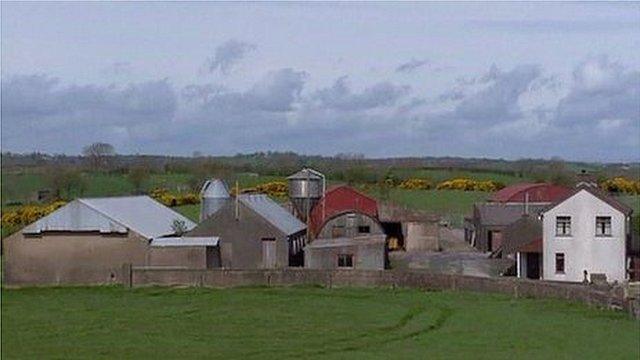Glenanne gang: Ex-police officer will not be prosecuted over murders
- Published
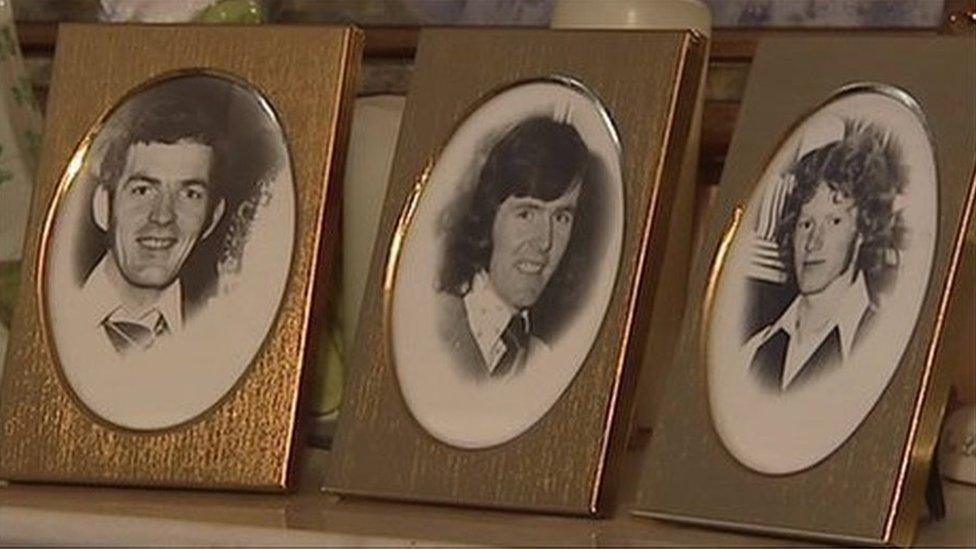
The killings of the three Reavey brothers in 1976 were among the 10 murders examined by the PPS
A former police officer will not be prosecuted in connection with 10 Troubles murders after a decision by the Public Prosecution Service (PPS).
The killings were linked to the Ulster Volunteer Force (UVF) Glenanne gang.
The PPS said the available evidence "was insufficient to provide a reasonable prospect of conviction".
Eugene Reavey, whose three brothers were among the 10 victims, said he had expected charges to be brought and now intends to challenge the PPS decision.
"Now I have to go and tell all of my family members that this guy is not going to be prosecuted," he told BBC News NI.
"It's just one of those things that the Reavey brothers didn't matter. They were just murdered in the Troubles and nobody wanted to know."
The 10 murders which were under examination by the PPS in this case were:
Thomas McNamee, who died from injuries he sustained in a bomb attack on McArdle's Bar in Crossmaglen in November 1974
Sean Farmer and Colm McCartney - two GAA fans who were killed at a dummy roadblock at Altnamackin, County Armagh in August 1975
Trevor Brecknell, Patsy Donnelly and Michael Donnelly who were killed in a gun and bomb attack at Donnelly's Bar in Silverbridge in December 1975
Anthony Reavey, Brian Reavey and John Martin Reavey, three brothers who were shot dead in their home in Whitecross, County Armagh in January 1976
Patrick Mone who was killed in a car bomb attack in Castleblayney, County Monaghan in March 1976
In a statement, the PPS said the test for prosecution had not been met in respect of the unnamed former RUC officer, who it referred to only as "Officer A".
Martin Hardy, assistant director of the PPS, said the key evidence against the ex-RUC man consisted of "a small number of documentary records containing allegations made by another person that Officer A was involved in the above incidents".
"These allegations are, however, not in the form of witness evidence. Therefore any prosecution of Officer A would require a hearsay application seeking the admission in evidence of these documentary records," he said.
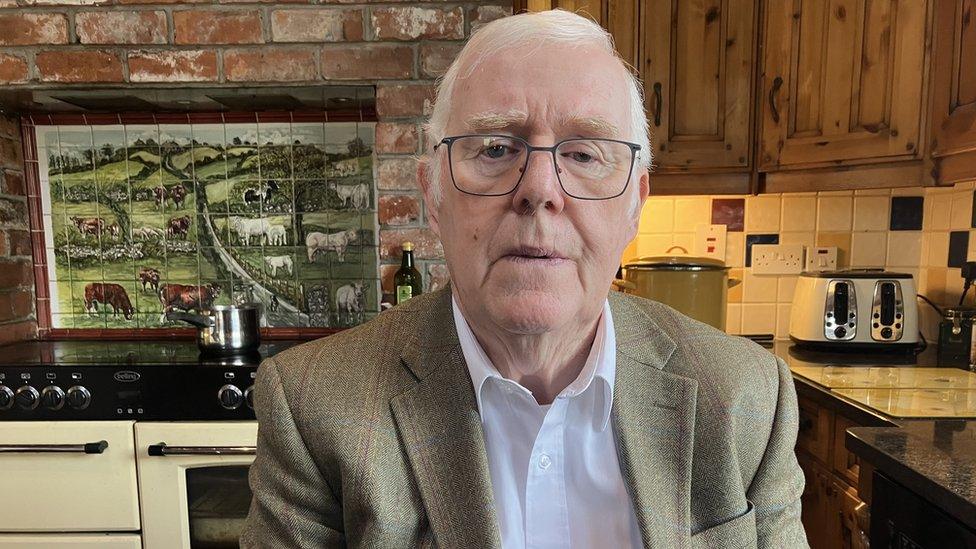
Eugene Reavey said he was getting calls from the press on Wednesday "to talk about something I knew nothing about"
Victims' group, the Pat Finucane Centre, said the decision not to prosecute the former Royal Ulster Constabulary (RUC) officer was disappointing, adding that the murders were not properly investigated at the time.
Alan Brecknell, son of Silverbridge bomb victim Trevor Brecknell, described the decision not to prosecute in his father's case as "deeply disappointing but not surprising".
"The RUC was well aware of the identities of those who carried out these attacks, while at the same time making sure not to carry out anything resembling a proper investigation," Mr Brecknell said.
"Rarely has the phrase justice delayed is justice denied rung more true."
The Reaveys were aged 17, 22 and 24 at the time of the fatal shootings and their brother Eugene Reavey has led a long campaign seeking the truth about their murders.
But the campaigner said he was not officially notified of the PPS decision before the information appeared online on Wednesday afternoon.
"Officially I've been told nothing. I heard from a third party source that one of the RUC officers that was to be charged in connection with the murder of my three brothers is now not going to be charged at all," he said.
"It is very disappointing that after 48 years, nearly 49 years almost now, that I find myself at the end of my tether almost with this investigation and it turns out to be a bum steer."
He added: "I'm not really fussed if they spend any time in jail or behind bars. All I wanted was for the truth and to have those guys named and shamed in their own community."
Mr Reavey said he would be speaking to his solicitor about the issue "because we will definitely be challenging this decision".

Who were the Glenanne gang?
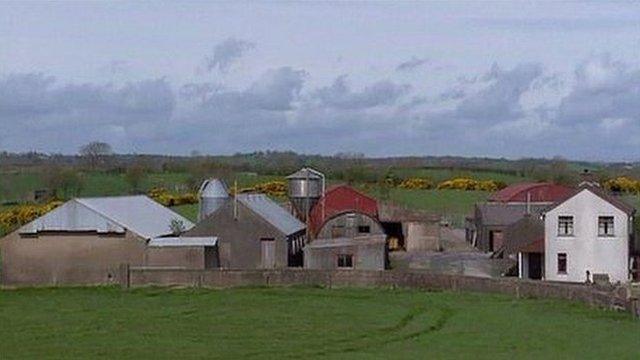
A farm in Glenanne was alleged to be the base for a UVF gang
The Glenanne gang were members of the loyalist paramilitary group the Ulster Volunteer Force (UVF).
The gang was based at a farm in Glenanne, County Armagh, in the 1970s.
The gang's members are believed to have been responsible for up to 120 murders in nearly 90 attacks in the Troubles.
Some of the attacks include the 1974 Dublin and Monaghan bombings, external, which killed 33 people, and the 1975 Miami Showband Massacre which targeted one of Ireland's best known showbands.
The gang was also implicated in fatal bombings at the Step Inn pub in Keady, County Armagh, and the Hillcrest Bar in Dungannon, County Tyrone.
Read more : Who are the UVF?

'Little evidential weight'
The PPS decision follows an investigation by the Police Ombudsman.
Mr Hardy said that, having carefully considered issues affecting "the credibility and reliability" of the documentary records related to Officer A, PPS staff determined that there was "no reasonable prospect" of a court granting the hearsay application.
He added that even if the hearsay application was granted, the credibility concerns over the documentary records meant that "little evidential weight would be attached to the material and, in the absence of other evidence, there is no reasonable prospect of conviction".
The PPS has offered to meet the victims' families to address any concerns they have about the decision not to prosecute Officer A.
"We have written to the families of the victims to explain in detail the reasons for the decisions reached in respect of their loved ones," Mr Hardy said.
"Although we understand that this will be deeply disappointing to them, we have assured them that these decisions were taken only after a rigorous evaluation of all the available evidence reported by investigators."
Related topics
- Published15 February 2020
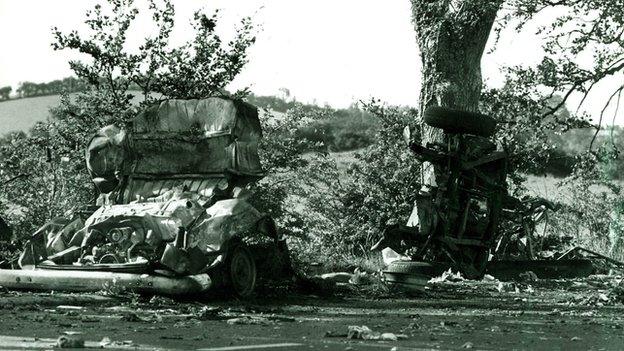
- Published30 November 2019
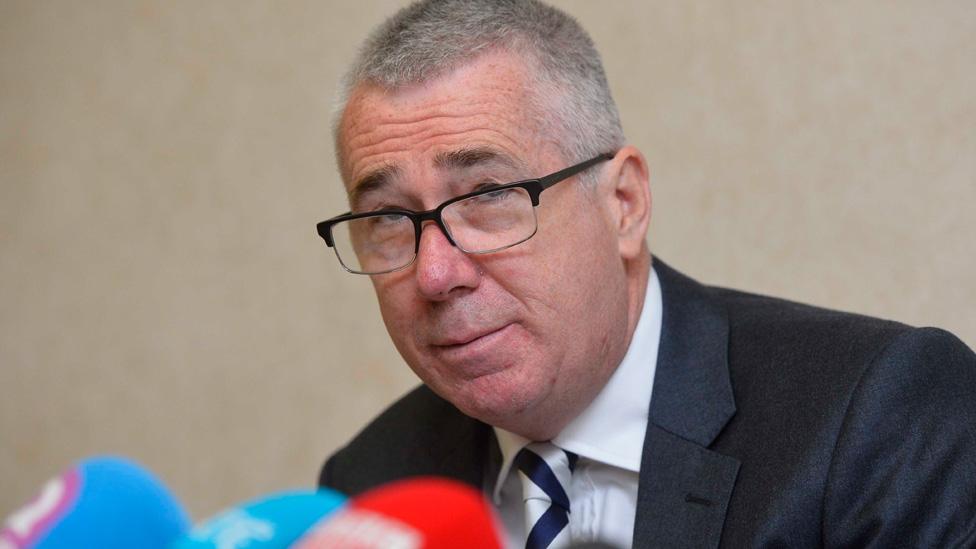
- Published28 July 2017
